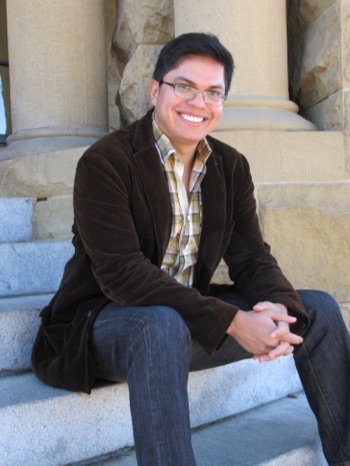Campus News
Pedroza received Russell Sage Foundation Pipeline Grant
Assistant Professor Juan Manuel Pedroza aims to learn more about these challenges and speak to them, with the help of a recently awarded grant from the Russell Sage Foundation.

Child care has become a much greater expense for families across the United States in recent years, but what are the additional challenges for mixed-status families?
Assistant Professor Juan Manuel Pedroza aims to learn more about these challenges and speak to them, with the help of a recently awarded grant from the Russell Sage Foundation.
The Foundation, in partnership with the Economic Mobility and Opportunity program at the Bill & Melinda Gates Foundation, seeks to increase innovative research advancements on economic mobility and access to opportunity nationally. The grants are focused on supporting early-career scholars — those currently serving as Assistant or Adjunct Assistant Professors, and lecturers who received their Ph.D. after January 1, 2013 — and aims to promote diversity through underrepresented scholars in the social sciences.
This year, Pedroza will be one of approximately 20 awardees, receiving a $30,000 grant toward his research efforts.
Pedroza, who started at UCSC back in July 2018, primarily studies the changing immigration landscape nationwide through his role in the Sociology Department. In his most recent work, Pedroza has examined inequalities against immigrant populations related to access to justice, the social safety net, poverty, and segregation.
In his most recently funded work, he’s extending his long-standing examination of mixed-status families across the U.S. to how much time parents and family members devote to child care.
“There are plenty of families who can afford to pay for after-school care, child care, or infant care,” he said. “But if you don’t have the resources, and child care responsibilities are unevenly distributed, then we want to know which gaps exist when it comes to time devoted to child care. In this project, I’ll be focusing on immigrant families and how child care responsibilities compare to other families.”
Pedroza has studied child care choices among low-income families. As a research associate at the Urban Institute, he worked with a team of public policy researchers to examine child care constraints in both Seattle, Washington and Providence, Rhode Island. With nearly 14 years of research, Pedroza emphasizes that he has taken this study about both child care and its place in “making ends meet” very seriously.
“Depending on what part of the country you’re in, child care can be like paying a second rent or second mortgage,” he said. “Given that child care is getting more expensive, there are going to be people who simply can’t afford it — and that may be creating separate realities for people at the low end of the income spectrum, which includes many immigrant families.”
From all of this, Pedroza asks: “To what extent is the time that you devote to making child care decisions look different for immigrant populations? If it does, then I want to measure those differences by comparing different types of families and child care trends over time.”
His previous work has shown that, for many Latin American-origin families with long histories of migration initiated by men, it is common for women and mothers to provide child care. The RSF pipeline grant will allow him to document if those trends have persisted or if they are shifting.
Looking forward to next steps, Pedroza plans to spend this summer diving further into this work across the U.S. He will be working to analyze child care trends in the 2000s and 2010s using the American Time Use Survey, a self-reported nationwide survey measuring the amount of time individuals spend on varied activities.
From this work, Pedroza will then present his findings to the RSF and other grantees at an annual conference in the summer of 2024. Pedroza is excited for this opportunity not only for his own research, but for that of his peers. The Grant funds a cohort of early career scholars and connects grantees with mentors and a broader network of scholars studying inequality.
“For young career scholars like myself, there’s a lot of ideas that we would like to pursue and a lot of exciting directions for research,” he said. “But there’s only so much time and bandwidth — this grant allows me to carve out the time and space to do that work.”